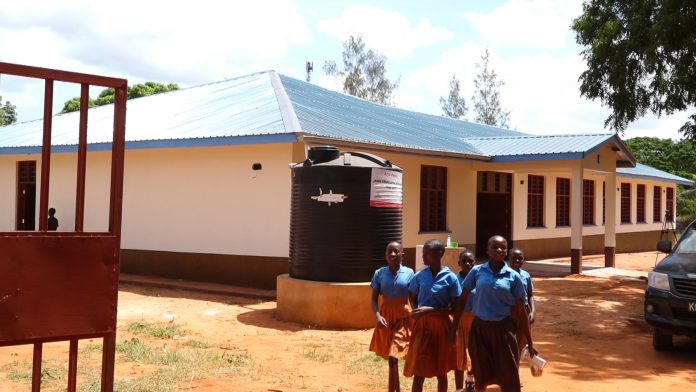The government is now raising an alarm over a high number of youths shunning away from technical training institutions started by the government to offer skills in different fields.
In Kilifi for example, youth are shunning away from these facilities worth hundreds of millions established by the government to offer skills for the young people who did not make it to university.
The Jubilee Party Administration led by President Uhuru Kenyatta and his Deputy William Ruto spent over Sh100, million to build technical colleges in the entire constituency majority of which are in operation.
In Malindi constituency for example the government established the Weru technical college in Langobaya but reports from the administration is worrying as the number of locals enrolling since its establishment is still very low.

Weru Technical institute Principal Edward Mwagambo Lewa said when the institution begun in 2017 Lewa said they enrolled only 17 students but currently there are 780 students but majority are outsiders.
Speaking to journalists at the college which is about 60 kilometers from Malindi town along the Malindi Sala gate he said out of the 780 students at the school the locals are only 150 despite that the capacity the institution can carry is 1500.
Lewa said the government pays for the students who enroll at the institution but despite that the majority of the students they have are from national Youth Service.
The principal said the all the technical institution charge Sh56, 420 per student in which the government pays Sh30,000 as tuition fees.
“Out of the Sh. 56,420 subtract Sh30,000 remaining Sh26,420, if the parent is able to pay that amount then well and good, if not there is HELB which is also government, the student is assisted to fill HELB forms which gives out Sh40,000,” he said.
Mr Lewa said once the institution deducts the Sh26, 420 the remaining amount that is over Sh13, 000 is given to the student as upkeep.
Normally he said the institution targets those who did not get points of being enrolled to university starting from Standard eight and form four failures who could not go to university as they offer all the courses for them to get technical schools.
Among the courses they offer at the technical institution include certificate and diploma courses in artisan and craft among others.
Initially when the institution was opened, he said the principal and his deputy had to go to churches, chief’s barazas and mosques to sensitize parents about the availability of the college but the situation has not changed.
“So, we are wondering why students are not coming to school because it is like free, free learning, and this government has taken the initiative of constructing these institutions all over the country, in all constituencies so that people can get skills for self-employment purposes,” he said.
Last Week Langobaya Assistant County Commissioner Daniel Ndausi organized a stakeholder meeting which brought together all stakeholders with a view to address the issue of low education standards in his area.
Administratively Langobaya division where Ndausi is in charge covers a section of three constituencies including Malindi, Magarini and Ganze.
Ndausi said high poverty levels contributed to the low education levels adding that bursary division has been a challenge within the political administrations.
“I have talked to the MPs in the constituencies in my divisions to ensure that bursary is issued in time because they normally issue it at the end 0of the year,” he said.
The ACC called for the review of the policy to bring back caning in schools so as to address cases of indiscipline.
John Mungoma the Langobaya secondary said parents are prioritizing burials more than education to the extent that a lot of money can be raised very quickly for burying a dead person but doing the same to facilitate education is difficult.
“Other parents have neglected their children and do not take their responsibilities, they bring their children to school and leave the principal to look on how the student will eat and learn,” he said.
With the infrastructure that the government both national and county has established its high time transition is smooth right from ECD, primary secondary, together with colleges and universities so that children are not left out in between.



















